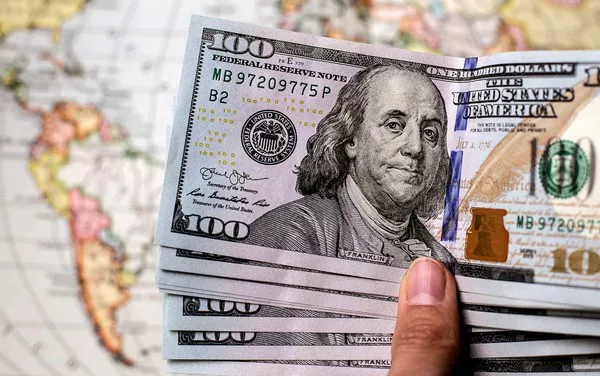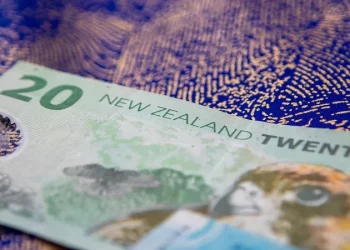In the world of global finance and foreign exchange trading, the exchange rate between two currencies plays a crucial role in determining the relative value of one currency compared to another. For anyone involved in the world of foreign exchange (Forex) trading, or simply looking to understand the value of their money when traveling or conducting international transactions, it is essential to grasp the dynamics of exchange rates. In this article, we will explore the value of 90 US dollars in British pounds, the factors that influence this exchange, and how it can impact both individual traders and large-scale international markets.
Understanding Currency Exchange
Currency exchange is the process of converting one currency into another. For example, when converting US dollars (USD) into British pounds (GBP), the value of the US dollar will be expressed in terms of how much one can receive in British pounds. Exchange rates fluctuate constantly due to a variety of factors, and this fluctuation can have a significant impact on the purchasing power of individuals, businesses, and governments alike.
For instance, if you are traveling from the United States to the United Kingdom, the exchange rate between USD and GBP will determine how much British currency you will receive in exchange for your American dollars. If the exchange rate is favorable, you may get more GBP for your 90 USD. Conversely, if the exchange rate is less favorable, you may receive fewer British pounds.
The Role of Forex Markets
The foreign exchange market, or Forex, is the global marketplace where currencies are traded. It is one of the largest and most liquid financial markets in the world, with a daily trading volume exceeding $6 trillion. The value of the US dollar against the British pound, known as the USD/GBP exchange rate, fluctuates continuously based on various economic and geopolitical factors.
When trading currencies, a trader or investor buys one currency while simultaneously selling another. The objective is to profit from changes in the value of one currency relative to another. For example, if a Forex trader believes that the US dollar will strengthen against the British pound, they will buy USD and sell GBP. Conversely, if they believe that the British pound will strengthen against the US dollar, they will buy GBP and sell USD.
In practical terms, the exchange rate between the USD and GBP is the price at which one currency can be exchanged for the other. This rate is determined by market supply and demand dynamics. When there is high demand for US dollars relative to British pounds, the value of the dollar will rise, and the exchange rate will reflect this. Similarly, if demand for British pounds increases, the value of the pound will rise, and the exchange rate will adjust accordingly.
The Exchange Rate for 90 US Dollars in British Pounds
To understand what 90 US dollars is worth in British pounds, we first need to look at the current exchange rate between the two currencies. Exchange rates are typically quoted as the number of units of the second currency (GBP) that can be exchanged for one unit of the first currency (USD). For example, if the exchange rate is 1 USD = 0.80 GBP, this means that for every 1 US dollar, you would receive 0.80 British pounds.
Let’s assume the current exchange rate is 1 USD = 0.80 GBP. If you were to exchange 90 US dollars, you would receive:
90 USD×0.80 GBP/USD=72 GBP
In this case, 90 US dollars would be equivalent to 72 British pounds. However, it is important to note that exchange rates fluctuate, and the value of 90 US dollars in British pounds could vary depending on the current market conditions.
Factors Influencing the Exchange Rate
There are several key factors that influence the exchange rate between the US dollar and the British pound. These factors are important for both Forex traders and individuals seeking to understand the value of their money when making currency exchanges. Some of the most significant factors include:
1. Interest Rates
Interest rates set by central banks have a significant impact on currency exchange rates. In the United States, the Federal Reserve (often referred to as the Fed) sets interest rates, while in the United Kingdom, the Bank of England (BoE) sets rates. When a central bank raises interest rates, it typically strengthens the currency because higher interest rates make a country’s assets more attractive to foreign investors. Conversely, when interest rates are lowered, the currency tends to weaken.
For example, if the Federal Reserve raises interest rates while the Bank of England keeps rates unchanged, the US dollar may strengthen relative to the British pound. This could result in a more favorable exchange rate for USD holders, meaning that 90 US dollars would buy more British pounds.
2. Inflation Rates
Inflation refers to the rate at which the general level of prices for goods and services rises over time. High inflation typically leads to a decrease in the purchasing power of a currency, which can weaken that currency relative to others. Conversely, low inflation tends to strengthen a currency because it preserves purchasing power.
If the United States experiences higher inflation than the United Kingdom, the US dollar may weaken against the British pound, leading to a less favorable exchange rate for 90 USD when converted into GBP.
3. Economic Performance
The overall economic health of a country plays a key role in determining the value of its currency. A strong economy, characterized by high growth rates, low unemployment, and robust consumer spending, tends to attract foreign investment, which can strengthen the currency. Conversely, a weak economy can have the opposite effect, leading to a depreciation of the currency.
If the US economy is performing better than the UK economy, the US dollar may appreciate relative to the British pound. In this scenario, 90 US dollars may be worth more British pounds.
4. Political Stability
Political stability and government policies also have a significant impact on currency values. Countries with stable political systems and predictable economic policies are generally seen as more attractive to foreign investors, which can strengthen their currencies. On the other hand, political instability, such as elections, uncertainty about government policies, or geopolitical tensions, can create volatility in the currency markets and weaken a currency.
For example, political uncertainty in the UK, such as concerns about Brexit or changes in government leadership, could lead to a decline in the value of the British pound, making 90 US dollars worth more GBP.
5. Market Sentiment and Speculation
Currency values are also influenced by market sentiment and speculation. Forex traders and investors react to news, economic reports, and geopolitical events, buying or selling currencies based on their expectations of future price movements. If traders believe that the US dollar will appreciate relative to the British pound, they may buy USD in anticipation of higher returns. This buying pressure can lead to an increase in the value of the US dollar, making 90 US dollars worth more British pounds.
Similarly, negative news about the UK economy or political situation could lead traders to sell the British pound, further weakening its value against the US dollar.
How Exchange Rates Affect Individuals and Businesses
The exchange rate between the US dollar and the British pound has significant implications for both individuals and businesses. Let’s look at some practical examples to understand how these fluctuations can affect different stakeholders.
1. Travelers
For individuals traveling between the United States and the United Kingdom, the exchange rate directly affects how much foreign currency they will receive when exchanging their money. If the exchange rate is favorable, travelers will get more British pounds for their US dollars, which can make their trip more affordable. Conversely, if the exchange rate is unfavorable, they may receive fewer pounds, potentially increasing the cost of their travels.
2. Businesses Engaged in International Trade
For businesses involved in international trade, fluctuations in exchange rates can have a significant impact on profitability. If a US-based business imports goods from the UK and the value of the British pound rises against the US dollar, the business will have to pay more for the same goods. Conversely, if the value of the pound declines, the business will pay less, which can improve profitability.
On the flip side, US exporters may benefit from a weaker US dollar, as their products become more competitive in foreign markets. If the dollar weakens against the pound, UK buyers may find US-made goods cheaper, boosting demand for US exports.
3. Investors and Forex Traders
For Forex traders and investors, exchange rate fluctuations create opportunities for profit. By correctly predicting the direction of currency movements, traders can buy and sell currencies to make profits. For example, if a trader believes the US dollar will appreciate against the British pound, they may buy USD and sell GBP. If the value of the dollar rises, they can sell their USD at a higher price, making a profit.
Conclusion
The value of 90 US dollars in British pounds is not a fixed amount but is determined by the prevailing exchange rate between the two currencies. This exchange rate is influenced by various factors, including interest rates, inflation, economic performance, political stability, and market sentiment. As such, the value of 90 US dollars in British pounds can fluctuate over time, and it is important for individuals, businesses, and investors to stay informed about market conditions that can impact exchange rates.
Whether you are a traveler, a business owner, or a Forex trader, understanding currency exchange and the factors that influence exchange rates can help you make more informed decisions when dealing with foreign currencies. By monitoring exchange rate trends and staying up to date on economic and political developments, you can better navigate the complex world of currency markets and make decisions that align with your financial goals.
Related Topics:



























